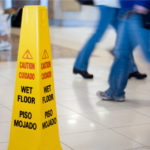You’re scrolling through the web when all of a sudden you get a pop-up message that tells you that your computer is in danger. You click on it, but nothing happens.
There’s a good chance that you got scammed.
Hackers are always on the prowl, targeting unsuspecting people as they surf the internet. If you aren’t careful, you’ll end up with a nasty virus that will be hard for even a professional to get rid of.
Browsing safely isn’t only about avoiding popups and downloading antivirus software. You’re going to need all the tools your computer has to offer to keep attackers away. Keep reading to learn more.
Update Your Browser
It never fails. You’re elbows deep in work when your computer browser prompts you to update. It’s so easy to ignore it and go about your life, but that’s a bad idea.
You see, developers are always looking out for holes in their systems that a hacker could get through. When they find one, they’ll fix it and release an update that will patch things up.
If you fail to download the update, you’ll leave yourself vulnerable to viruses and hackers. Your browser isn’t the only thing that you should stay on top of.
Your device will also prompt you to download computer updates. You shouldn’t put these off for the same reason. Developers will patch in answers to malicious software.
If you do tend to exit out of these update prompts and forget about them, we suggest setting up your computer to install them automatically. This will keep everything up to date for you.
Set Security Preferences
So, you’ve got your computer set up and your browser installed. Now you can start surfing the web, right? Yes, but before you begin, take a moment to play around with the browser’s security settings.
The number of things that you can change is surprising. We recommend turning on something called do not track. It’s a vital feature for protecting your personal info.
It will block certain websites from tracking your browsing data. A lot of browsers have this feature turned on automatically, but not all of them do. If yours doesn’t, go ahead and turn it on.
Keep in mind that the browser is requesting that the websites don’t track your activity, not telling. The site can turn down the request or ignore it altogether. Still, trying is better than doing nothing.
Private Browsing
Private browsing is also known as incognito mode. By turning it on, you block some websites from keeping tabs on your browsing data. Your service provider will still be able to see what you get up to, but it will keep other prying eyes away.
It’s great if you’re trying to buy something for someone who shares the same computer as you. It also works for reducing the number of cookies you gather up. The fewer cookies you have under your belt, the less of your personal information is out there in the ether for hackers to steal.
Use an Ad Blocker
There’s nothing more annoying than getting overloaded by ads while you’re web browsing. For one, it slows your computer down. For another, they’re full of clickbaity news articles and malware.
If you click on one of these ads on accident, you’ll welcome tons of malicious viruses onto your computer. To stop this from happening, you’ll want to download an ad blocker.
They’re super easy to use. All you have to do is download it via your web browser extensions. From there, it will set to work to block all those annoying pop-ups.
We will say that this practice is a little controversial. Most websites get paid for showing the ads. By blocking them, you cut off revenue to your favorite sites.
To this end, consider whitelisting the websites you trust by disabling your ad blocker. As for the ones that seem a little sketchy, feel free to leave it on.
Clear Your Cache and Cookies
As you browse through the internet, sites pick up information about you. They use cookies to track what you do and offer you relevant ads.
Again, ads are annoying and they can be malicious. Cookies also put your information out there for hackers to get ahold of. This is an unavoidable danger in some cases.
You might not be able to eliminate your risk entirely, but you can cut back on it by deleting your cookies and cache every now and again.
It’s not too hard to do this through your web browser. If you think you’ll forget, you can get software that will take care of this necessary part of computer maintenance for you.
Invest in a VPN
Going out to a public location to work is a great way to get a little change of scenery. The problem is that using free public wi-fi can be dangerous. It’s open for anyone to use, including hackers.
They’ll be able to see your activity and intercept any data that you send to another person. You can mask your presence by finding the most secure VPN.
If you’re unfamiliar with what a VPN does, it uses encryption to hide your activity from prying eyes. Since you don’t visually appear on the network, hackers won’t be able to spot you.
Be Choosy About What You Download
You get an email notifying you that there’s been a problem with your bank account. To dispute the problem, you’re told that you need to click on the link provided in the message.
The email seems official enough, so you go ahead and click away. This is a clever hacker tactic known as phishing. They send you a message that seems legit to trick you into downloading a virus onto your computer.
You’ve got to be choosy about what you download. If you get a pop-up telling you that your computer has a virus, exit out as fast as possible. If you let that program on your device, it will infect it with malware.
Downloading your favorite music and pictures from the web can give you a tiny hit of serotonin. Even if you get them from trustworthy sites, they can still be infected, however. Scan everything with antivirus software before you let it onto your computer.
Download an Antivirus Program
No matter how careful you think you are when you’re browsing the internet, there’s always the chance that you’ll mess up. Viruses can hide in even the most reputable sites.
That’s why you’ve got to arm yourself with the best antivirus program that you can get. It will monitor the sites that you’re on and let you know if they’re safe or not. Again, before you download a program, you can scan it with your antivirus software to find out if it contains malware.
Practice Proper Password Management
If a hacker is able to guess your passwords, they can get into your online accounts and gain access to a lot of your personal information. That’s why you should avoid using the same password for everything.
Think about it, by guessing your password once, they’ll be able to get into everything. It’s also important that you make your password difficult to crack.
Don’t use consecutive numbers like 123 or 456. Don’t use information that a hacker could easily get by visiting your social medial profile, such as your birthday.
Look For the Padlock
When you’re browsing through websites, you need to look for the closed padlock in the URL search bar. This means that the site is secure.
If you see an exclamation mark, back out. The site isn’t secure, which means cybercriminals can get access to your information. In many cases, your antivirus software will prevent you from even venturing onto these sites.
Firewall
Every computer is equipped with a firewall. It acts as the first line of defense against malware. You’ll still need to have an antivirus program installed too.
Having both going at once will greatly reduce your risk. If you own a business, oftentimes your IT vendors will have to turn your firewall off to perform maintenance. Check behind them to make sure they turn it back on.
The Secret to Browsing Safely Online
Cybercriminals are waiting to pounce the second you let your guard down online. Stop them in their tracks by browsing safely. Look or the padlock in the URL bar, make it difficult to guess your passwords, keep your firewall and antivirus going, and don’t forget to set your security preferences.
Do this, and we promise you’ll be able to keep that nasty malware away. For more tips on staying secure while you browse the net, visit the Tech section of our blog.

